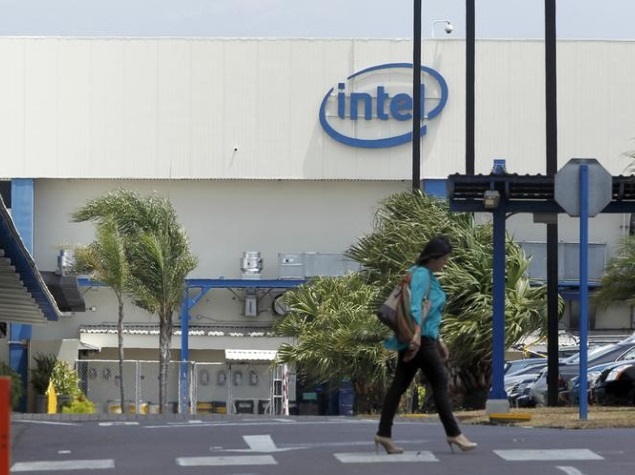- Home
- Internet
- Internet News
- Huawei, Intel Expand Tie Up Amid China's Rising Scrutiny of US Tech Firms
Huawei, Intel Expand Tie-Up Amid China's Rising Scrutiny of US Tech Firms

The partnership, announced by Huawei in a statement, comes as U.S and other Western tech firms' scramble to burnish their bona fides with China, which has become increasingly wary of foreign technology.
Joining hands with Chinese companies, including technology transfers and adopting Chinese partners' branding, can make these products more palatable to local buyers and authorities in the world's second-largest economy.
"How do you stay in this market and do the least damage to your core business - that's the puzzle everybody is focusing on now," said James McGregor, chairman for advisory firm APCO China.
China's government has been openly pushing for the use of more Chinese and less foreign-made technology, both to grow its own tech sector and as a response to former U.S. National Security Agency contractor Edward Snowden's leaks about widespread U.S. cyber surveillance.
These policies have become a source of considerable friction in foreign relations.
Earlier this week, U.S. President Barack Obama warned of a proposed anti-terrorism law's impact on technology firms and international business, and demanded amendments.
Other U.S. enterprise tech firms adopting a partnership strategy include IBM Corp, Dell Inc, Cisco Systems Inc, Hewlett-Packard Co and Juniper Networks Inc.
The cloud computing industry is a focus area for China, with Premier Li Keqiang saying in his government work report delivered to parliament on Thursday that the government would support its development.
Intel and Huawei have collaborated previously, including a server and cloud product team-up in 2012 and an agreement to cooperate on data storage last April.
© Thomson Reuters 2015
Catch the latest from the Consumer Electronics Show on Gadgets 360, at our CES 2026 hub.
Related Stories
- Samsung Galaxy Unpacked 2025
- ChatGPT
- Redmi Note 14 Pro+
- iPhone 16
- Apple Vision Pro
- Oneplus 12
- OnePlus Nord CE 3 Lite 5G
- iPhone 13
- Xiaomi 14 Pro
- Oppo Find N3
- Tecno Spark Go (2023)
- Realme V30
- Best Phones Under 25000
- Samsung Galaxy S24 Series
- Cryptocurrency
- iQoo 12
- Samsung Galaxy S24 Ultra
- Giottus
- Samsung Galaxy Z Flip 5
- Apple 'Scary Fast'
- Housefull 5
- GoPro Hero 12 Black Review
- Invincible Season 2
- JioGlass
- HD Ready TV
- Laptop Under 50000
- Smartwatch Under 10000
- Latest Mobile Phones
- Compare Phones
- Samsung Galaxy A07 5G
- Vivo Y500i
- OnePlus Turbo 6V
- OnePlus Turbo 6
- Itel Zeno 20 Max
- OPPO Reno 15 Pro Mini 5G
- Poco M8 Pro 5G
- Motorola Signature
- Lenovo Yoga Slim 7x (2025)
- Lenovo Yoga Slim 7a
- Realme Pad 3
- OPPO Pad Air 5
- NoiseFit Pro 6R
- Xiaomi Watch 5
- Acerpure Nitro Z Series 100-inch QLED TV
- Samsung 43 Inch LED Ultra HD (4K) Smart TV (UA43UE81AFULXL)
- Asus ROG Ally
- Nintendo Switch Lite
- Haier 1.6 Ton 5 Star Inverter Split AC (HSU19G-MZAID5BN-INV)
- Haier 1.6 Ton 5 Star Inverter Split AC (HSU19G-MZAIM5BN-INV)
















